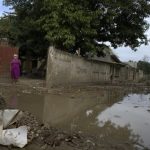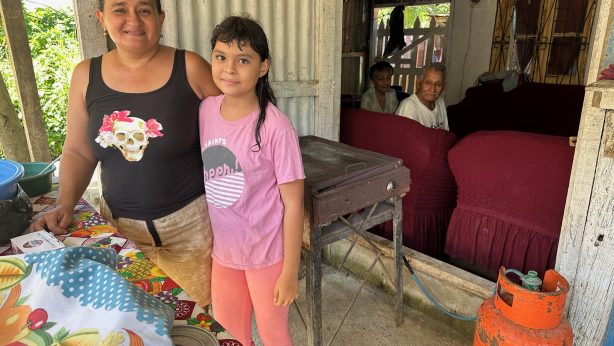Building Resilience for Women Post Natural Disasters
 Gender and cultural norms can affect natural disaster response, which can become barriers to women and slow their recovery. For one, women are often expected to continue being the homemaker. Stereotyped as “worriers,” they aren’t always taken seriously — resulting in exclusion within leadership roles in finance and community recovery projects. Recovery organizations also tend to call for the men of the household to ask where to direct aid, even though women are usually filling out forms requesting the assistance.
Gender and cultural norms can affect natural disaster response, which can become barriers to women and slow their recovery. For one, women are often expected to continue being the homemaker. Stereotyped as “worriers,” they aren’t always taken seriously — resulting in exclusion within leadership roles in finance and community recovery projects. Recovery organizations also tend to call for the men of the household to ask where to direct aid, even though women are usually filling out forms requesting the assistance.
In family safety matters, which women are often expected to be in charge of, men typically determine what families ultimately do. For instance, a woman from Granbury, Texas was interviewed about her experience during an EF-4 tornado. She recounted how she initially resisted her husband’s plan to drive away from the storm. She eventually gave in and ended up being stuck in the car with her husband and children as the tornado hit.
The feeling of isolation and that your perspective isn’t taken seriously can impede women’s mental health recovery. As such, it’s important that women are paid attention to in the aftermath of every natural disaster. Below are a few ways to help women recover and support resilience:
Establish a routine
The aftermath of a natural disaster brings unpredictability and uncertainty, which results in stress and anxiety. Creating a structure becomes all the more important — it helps contribute to feelings of organization and control of circumstances. When establishing a routine, try to focus on manageable things that support health and well-being. For instance, make sure to eat meals when possible, as well as set a time for waking and sleeping to ensure that you get a good amount of rest. Also, include anything positive that you can look forward to. This can be something as simple as talking with family and friends. While days might not be as structured as before the disaster, having even a very loose schedule keeps people grounded.
Seek support
No matter how many times you have experienced a natural disaster, it doesn’t necessarily make it easier to cope. For instance, in Honduras there were two hurricanes within two weeks that caused mass damage and despair. This put many vulnerable people into immediate danger, with many not knowing who or where to turn to.
Social workers are often one of the first respondents. Research has shown that social workers play a huge role in a country’s response to natural disasters. For women who are much more vulnerable in the event of a social collapse, social services are imperative for support and protection. Competent social workers teach women resilience and strategies to help persevere and grow through challenging circumstances. In some instances where mental health professionals are available, individuals can obtain counseling which is helpful for coping and reintegrating into society.
Limit sources of stress
Your priority after a natural disaster should be to recover. This is why you should try to stay away from anything that adds to the already-existing stress of a disaster’s aftermath. While it’s important to face emotions regarding the event, you should do it at your own pace. Constantly seeing and hearing news stories about the natural disaster can increase stress and anxiety — especially since some people experience reliving the event.
Understand that there will be changes
In 2019, Cyclone Idai destroyed three of the most vulnerable countries in Southern Africa, affecting millions. This resulted in collapsed houses, flooded fields, washed-away bridges, and impassable roads, making it challenging for relief operations to access affected communities. Experiencing any natural disaster and dealing with the aftermath is physically and emotionally exhausting. Natural disasters result in destroyed homes and livelihoods, as well as injuries and death. Other life changes include loss of employment and separation from peers. NGOs and government agencies work hard to respond to the needs of those affected. They can be of great value to help individuals and communities adapt to emergencies. There are also organizations like Adelante Foundation, committed to helping with long-term strategies so that people have access to funds and resources to rebuild and thrive beyond the devastation.
Specially written for adelantefoundation.org by Jessica Wilson


